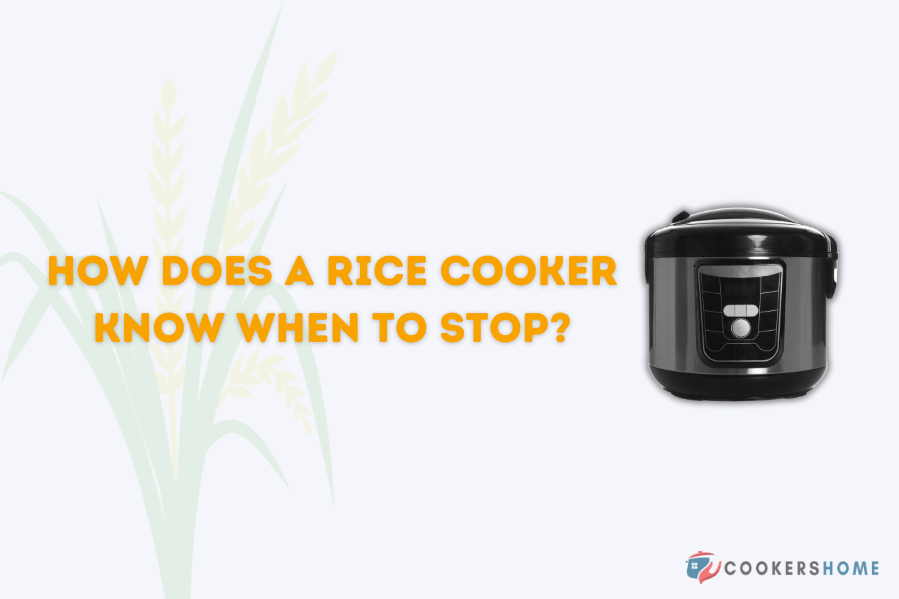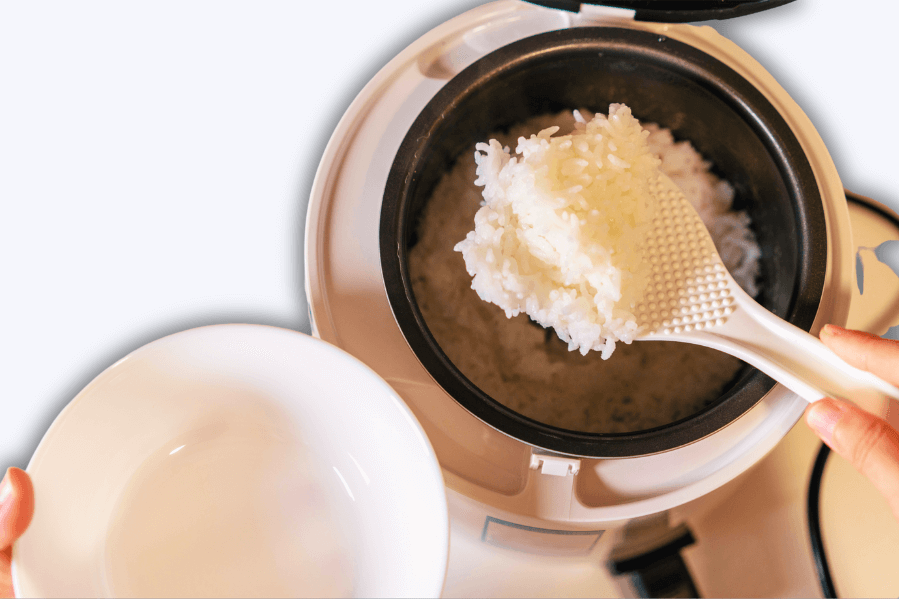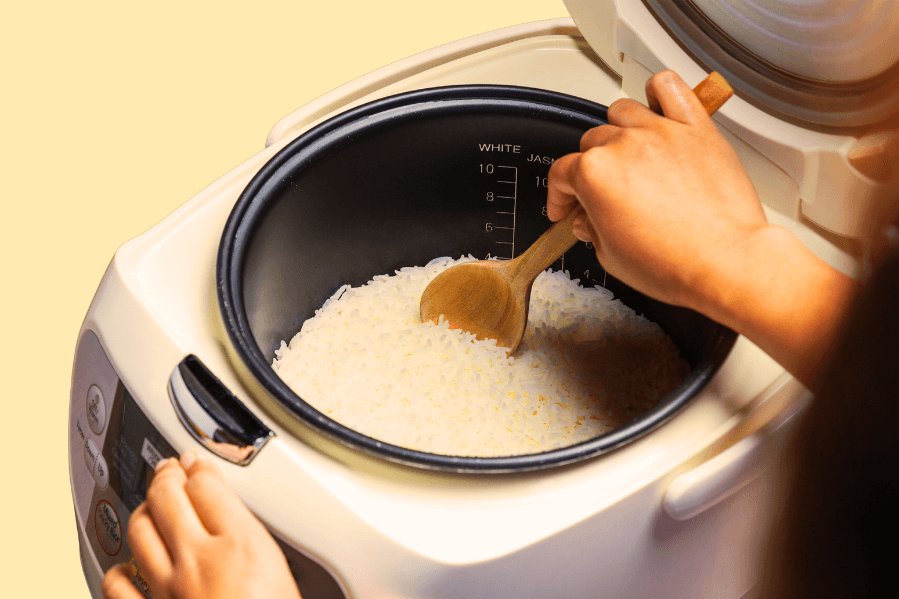How Does a Rice Cooker Know When to Stop? An Ultimate Guide

Rice cookers have now become essential to our households. They save our time and effort and make perfect rice. Human beings are quite curious, and people often ask this question: how does a rice cooker know when to stop?
If a rice cooker doesn’t stop heating, the rice may get burned, creating a potential hazard. So, keep reading to get your answer. In this article, we will talk about the science behind the rice cookers, which made them function properly.
Table of Contents
How Does a Rice Cooker Know When to Stop Cooking?

A rice cooker is a versatile kitchen appliance that makes cooking meals a breeze. Its main function is to know when to stop, which it achieves with the help of a built-in thermostat that monitors the temperature of the rice and water.
This thermostat is set to a specific temperature, mostly around 100 degrees Celsius (212 degrees Fahrenheit). This is the boiling point of water at standard atmospheric pressure.
So, what happens is that rice cookers have heating elements in them. And when you add rice and water to the cooker and turn it on, this heating element begins to heat the mixture.
When the temperature rises, the water inside the rice cooker also starts to boil and eventually turns into steam. The thermostat detects that the cooking chamber’s temperature has reached this preset level (around 100°C), signalling the cooker to switch off automatically.
This way, the appliance ensures that your rice will not stick to the bottom but come out perfectly with the right moisture and texture.
Why Does My Rice Cooker Switch to Warm Mode So Quickly?

Most rice cookers come with a ‘Keep Warm’ feature that helps keep the rice warm for almost 10 to 12 hours. However, if your rice cooker switches to “warm” mode before your rice is done, it is an issue you must address. And there are a few reasons for this. Let’s find out what they are.
1. Temperature Sensor
The primary reason a rice cooker prematurely switches to the “warm” setting is its faulty temperature sensor. The sensor’s function is to monitor the cooking temperature, and if it is misplaced and not working properly, it could lead to inaccurate timing.
2. Rice Rinsing
Washing the rice under water is a necessary step before making rice because it removes the excess starch. But if you don’t rinse the rice properly, some leftover starch can interfere with the rice cooker’s ability to gauge when the rice is fully cooked. This could cause it to switch to “warm” mode too soon.
3. Rice to Water Ratio
Another reason why the rice cooker quickly switches to the warm mode is that you are using the wrong water-to-rice ratio. It can also make the rice overcooked or undercooked. So follow the proper rice-to-water ratio for each type of rice, whether white rice, brown, basmati or wild rice, etc.
4. Control System
The rice cooker’s control system or heating element wears out or may develop defects over time. When these components malfunction, they may lead to inaccurate cooking times and early activation of the warm setting.
How Long Does Rice Take to Cook in a Rice Cooker?
Different types of rice take different time to cook in the rice cooker. Let’s find out the rice types’ water-to-rice ratio and cooking time.
| Type of Rice | Water to Rice Ratio | Cooking Time |
|---|---|---|
| Short Grain White | 1 1/2 cups to 1 cup | 15 mins |
| Long Grain White | 1 3/4 cups to 1 cup | 15 mins |
| Parboiled Rice | 2 cups to 1 cup | 20-25 mins |
| Basmati Rice | 1 1/2 cups to 1 cup | 15-20 mins |
| Jasmine Rice | 1 1/2 cups to 1 cup | 15-20 minutes |
| Long Grain Brown | 2 1/2 cups to 1 cup | 45-50 minutes |
| Wild Rice | 2 1/2 cups to 1 cup | 45-50 minutes |
Can I leave My Rice Cooker Unattended?
Yes, rice cookers are designed to be left unattended during cooking. They have built-in timers and a warm function that ensures safe and convenient cooking.
So, what happened is that when the rice cooker is done cooking, it automatically switches to the “keep warm” mode. The keep-warm feature maintains the rice at an optimal temperature until you serve.
Summing Up
The rice cooker is a gem when cooking the best rice. Today, we understand the science and technology behind its working and answer your question: how does a rice cooker know when to stop? It would help you to understand your kitchen companion better and appreciate it. If you want to try different meals in your rice cooker, check out our guides on recipes like congee, Mexican rice, Grits, Risotto, etc. These are quite famous meals worldwide, and we share our tested recipes.
FAQs
1. Can a rice cooker detect different types of rice?
Most basic rice cookers need help to differentiate between rice types. However, advanced or digital models have settings for different rice varieties, adjusting cooking times and temperatures accordingly.
2. Do all the rice cookers have an automatic shut-off feature?
No, not all rice cookers have an automatic shut-off feature. In comparison, many rice cookers come with timers that automatically switch off the cooker when cooking is complete.
3. Is it safe to open a rice cooker while it’s cooking?
No, opening the rice cooker’s lid is not recommended while cooking. This can disrupt the cooking process and may affect the final texture and doneness of the rice.





